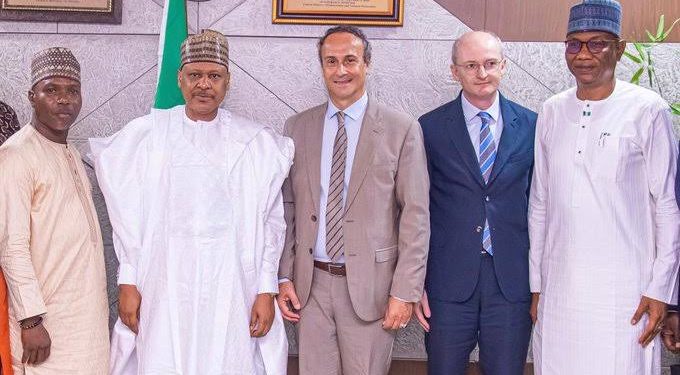Nigeria has reaffirmed its commitment to strengthening economic ties with France as part of ongoing efforts to attract foreign direct investment and implement sweeping economic reforms under President Bola Tinubu’s administration.
At the Nigeria Business Forum in Paris, Nigeria’s Minister of Information and National Orientation emphasized the country’s transformation under the Renewed Hope Agenda—an eight-point policy strategy focused on driving inclusive economic growth and positioning Nigeria as a key player in Africa’s evolving trade landscape.
The Minister told the audience that Nigeria’s current reforms are unprecedented in scope and ambition, aimed at improving transparency, enhancing competitiveness, and making the country more attractive to investors. He pointed to early results, including a 3.84 percent GDP growth in the first quarter of 2024 and a revenue increase of more than 20 percent. He also noted improvements in Nigeria’s debt servicing obligations.
Institutional support for these reforms, according to the Minister, has been crucial. He cited the Central Bank of Nigeria (CBN), the Nigerian Investment Promotion Commission (NIPC), the Securities and Exchange Commission (SEC), and the Federal Competition and Consumer Protection Commission (FCCPC) as key enablers of a more robust investment climate.
To illustrate government-backed initiatives driving the economy, the Minister highlighted several flagship projects such as the Renewed Hope Infrastructure Development Fund (RHIDF), which targets critical sectors like energy and transport; the Nigerian Consumer Credit Corporation (CrediCorp), aimed at expanding credit access and the MOFI Real Estate Investment Fund (MREIF), which is helping to unlock growth in the real estate sector.
He urged French investors to take advantage of opportunities across sectors such as infrastructure, agribusiness, healthcare, and real estate, with a special focus on livestock development. The recent creation of Nigeria’s Ministry for Livestock Development, he said, is expected to reshape the sector, creating fertile ground for partnerships with international players. He cited French dairy giant Danone as a potential partner for future collaboration.
The Minister also spotlighted Nigeria’s demographic strength, noting a population of over 220 million, with more than 70 percent under the age of 35. This youthful, tech-savvy population, he said, is a major attraction for investors seeking long-term returns in Africa’s consumer market.
He announced plans for Nigerian banks to open offices in Paris, signaling a stronger Nigerian financial footprint in Europe. He also predicted increased Nigerian engagement in Europe’s creative, tech, and media sectors, reinforcing Nigeria’s growing cultural and economic influence.
Among the reforms the Minister outlined were foreign exchange unification, the removal of fuel subsidies, tax policy overhauls, trade facilitation via the National Single Window, and digital and immigration reforms—all designed to simplify doing business and stimulate both domestic and foreign investment.
During his stay in France, the Minister is expected to hold high-level bilateral meetings with French media and cultural institutions to promote deeper cooperation in the information and broadcasting sectors, further strengthening diplomatic and economic ties between the two nations.










